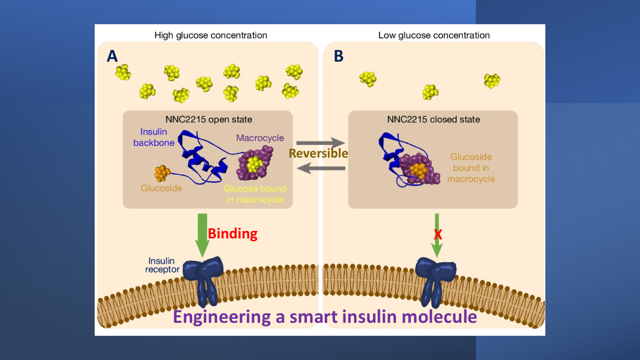When you hear the word “diabetes,” your first thought is likely about high blood sugar. Blood sugar is an often-underestimated component of our health and when it’s out of balance over a long period of time, it could develop into Diabetes which means the body isn’t able to properly process and use glucose from the food we eat.
There are different types of diabetes, each with different causes, but they all share the common problem of having too much glucose in your bloodstream which has both short-term and long-term effects on the body.
Why is my blood glucose level high? How does this happen?
The process of digestion includes breaking down the food into various different nutrient sources. When you eat carbohydrates (for example, bread, rice, pasta), your body breaks this down into sugar (glucose) and when glucose is in the bloodstream, it needs Insulin to help it get into our body’s cells and nourish it.
Join our WhatsApp ChannelInsulin is a hormone made by the pancreas. When the pancreas releases insulin into your bloodstream. Insulin acts as the “key” that unlocks the cell wall “door,” which allows glucose to enter your body’s cells. Glucose provides the “fuel” or energy tissues and organs need to properly function.
But in the case of diabetes the pancreas either make or don’t make any insulin but the body’s cells don’t respond to it and can’t use it as it normally should. So, when glucose can’t get into your body’s cells, it stays in your bloodstream and your blood glucose level rises.
Types of Diabetes
1. Type : The pancreas either produces too little insulin or none at all. The insulin can’t be used effectively.
2. Type 2: This is a result of certain lifestyle, dietary, and exercise habits.With type 2 diabetes, the pancreas stops using insulin effectively.
3. Prediabetes: Your blood glucose levels are higher than normal but not high enough to be officially diagnosed with Type 2 diabetes.
4. Gestational diabetes: This type develops in some women during their pregnancy as a result of hormonal changes and excessive weight gain
Who is at risk of having diabetes?
1. Overweight/Obesed Individuals
2. Sedentary lifestyle: The lack of physical activity
3. Genes and family history
4. Insulin resistance: Hormones produced by the placenta contribute to insulin resistance, which occurs in all women during late pregnancy.
5. Hormonal diseases: Cushing syndrome, Hyperthyroidism
6. Medications: Niacin, a type of vitamin B3, Anti-seizure drugspsychiatric drugs, drugs to treat human immunodeficiency virus (HIV)
7. Excessive fatty and sugary Diet: Processed Carbohydrates ( like bread, cake), Sugar-Sweetened Drinks, Saturated Fats (like cheese, fatty meat)
Diabetes has short term and long term effects in the body
Short term effect like; Excessive thirst (Polydipsia), Excessive Urination (Polyuria) ,Weakness (Lethargy) , Blurry vision, Numbness or tingling in the hands or feet.
The long term damages are called complications of Diabetes and they include; Retinopathy, Nephropathy, Neuropathy, Stroke ,Heart Disease ,Infertility , Slow wound healing/ foot sores
Complications in pregnancy
High blood sugar levels during pregnancy can harm mother and child, increasing the risk of:
– High blood pressure, Preeclampsia, Miscarriage or stillbirthbirth defects
Risk factors of developing diabetes complications
1. Age of diagnosis ( being diagnosed at a younger age)
2. Time of diagnosis ( the longer the diagnosis the more the risk)
People living with diabetes can develop complications of diabetes except for the following people with;
1. Normal Blood pressure
2. Normal cholesterol
3. Controlled Blood Sugar level
Steps to take
1. Maintain a healthy meal plan like the Mediterranean diet (vegetables, whole grains, beans, fruits, healthy fats, low sugar) these diets are high in nutrition and fiber and low in fat and calories.
2. Exercising regularly. Try to exercise at least 30 minutes most days of the week. Walk, swim or find some activity to do.
3. Losing weight if you are overweight. Work with your healthcare team to develop a weight-loss plan.
4. Taking medication and insulin, if prescribed, and closely following recommendations on how and when to take it.
5. Keeping your appointments with your healthcare providers and having laboratory tests completed as ordered by your doctor.
What should my blood glucose level be?
Ask your healthcare team what your blood glucose level should be. They may have a specific target range for you. In general, most people try to keep their blood glucose levels at these targets:
Before a meal: between 80 and 130 mg/dL.
About two hours after the start of a meal: less than 180 mg/dL.
Take note;
There’s no cure for type 1 diabetes. It requires lifelong disease management. But with consistent monitoring and adherence to treatment, you may be able to avoid more serious complications of the disease. If you work closely with your doctor and make good lifestyle choices, type 2 diabetes can often be successfully managed. If you have gestational diabetes, chances are it will resolve after your baby is born (though you do have a higher risk of developing type 2 diabetes later in life).

















Follow Us